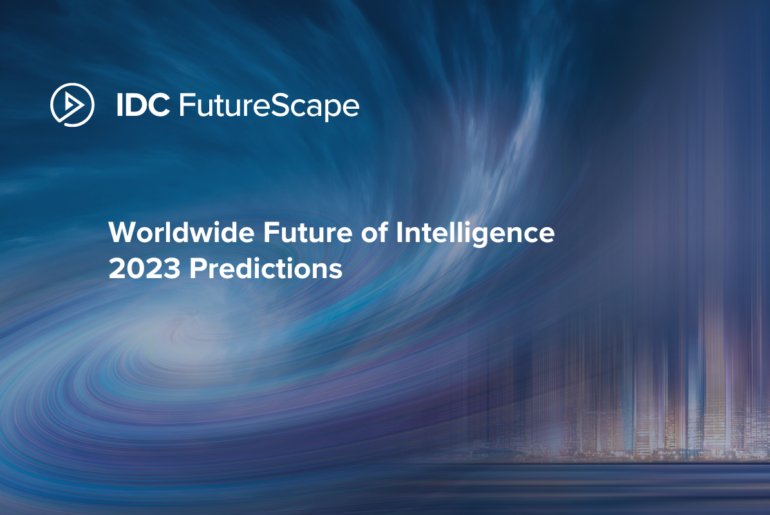“Intelligence is a core differentiator.” – UPS“
We have to use data to become the utilities company of the future.”– Con Edison
“The science of healthcare has progressed. The business of healthcare has not kept up. Only data and analytics can help our business stay viable.” – Michiana Hematology Oncology
“Our people needed to understand the potential of data.” – Texas Department of Transportation
What do these companies have in common? They have all invested in programs to improve their enterprise intelligence capabilities and have seen success in the form of positive business outcomes. All four were winners in IDC’s 2021 Future Enterprise Best in Future of Intelligence North America Awards, with UPS taking honors as the overall winner, demonstrating strength across all four pillars of enterprise intelligence:
- Information Synthesis
- Insights Delivery
- Collective Learning
- Data Culture
IDC’s Enterprise Intelligence (EI) benchmarking research shows that enterprise intelligence maturity makes a material difference to business outcomes. Top-quartile EI performers are 2.7x more likely to have experienced strong revenue growth between 2020 and 2022, and 3.6x more likely to have accelerated time to market for new products, services, experiences, and other initiatives.
While organizations that invest in enterprise intelligence will find that they become more digitally resilient, agile, innovative, and dynamic than their peer companies, they must direct those investments across different areas, including:
- Data platforms to enable more openness, flexibility, scale, and connectivity
- Pipelines and processes to enable more effective, consistent processing of data to make it “insight-ready”
- Tools to build and deliver analytics and insights; improve decision-making and action-taking processes; and enhance culture.
The following 10 predictions represent the trends we expect to see across the four pillars of enterprise intelligence:
- Prediction 1: By 2024, organizations with greater enterprise intelligence will have 5x institutional reaction time, resulting in persistent first-mover advantage in capitalizing on new opportunities.
- Prediction 2: By the end of 2025, vigilant C-suite leaders of G2000 will invest 40% more on enterprise and market intelligence, helping them counter the recession and slice through the storms of disruption.
- Prediction 3: By the end of 2024, 30% of enterprises using video surveillance technologies will also be using video data analytics to support operational decision making requiring more oversight.
- Prediction 4: By 2024, 80% of G2000 companies will increase investment in intelligence about threats/opportunities to local operations posed by external threats such as supply chain disruptions.
- Prediction 5: 30% of G2000 organizations will fail to deliver on their enterprise intelligence goals by 2026 because they have not centered trusted capabilities in their efforts to develop data culture.
- Prediction 6: By 2025, real-time intelligence will be leveraged by 90% of G1000 to improve outcomes such as customer experience by using event-streaming technologies.
- Prediction 7: By 2027, 66% of large enterprises will make major investments in data control plane technologies that can measure the risk inherent in data and reduce risk through security and screening.
- Prediction 8: By the end of 2025, >50% of G2000 organizations will face penalties if they do not use AI for detection and automatic remediation of data due to growing complexity, volatility, and resource scarcity.
- Prediction 9: Facing increased demand for enterprise intelligence skills and to meet employee expectations, 70% of G1000 will have formal programs fostering data literacy and upskilling by 2028.
- Prediction 10: By 2026, 30% of G1000 companies will extend investments in AI infrastructure to performance-intensive computing to solve the most complex problems using HPC-driven simulations to improve outcomes.
Interested in learning more? Watch our on-demand webinar, IDC FutureScape: Worldwide Future of Intelligence 2023 Predictions.




